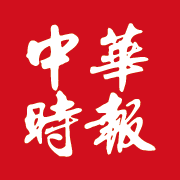By APD writer Melo M. Acuna
MANILA, Nov.13 (APD) -- China is the second biggest economy today and will continue to move ahead because it has a clearer and unified vision from Deng Xiaoping to its current leader President Xi Jinping.
This was how resource persons at Tapatan sa Aristocrat described China and President Xi Jinping who is scheduled to visit Manila next week.
As far as Jaime FlorCruz, former CNN Beijing Bureau is concerned and after residing in China for over four decades, he said Mr. Deng Xiaoping’s decision to open China to the world, they have debated and discussed issues and once they reached a consensus, they went on.

Former CNN Beijing Bureau Chief Jaime FlorCruz said the Chinese has a continuity of vision from five to 20 years or even century-long plans as they adopt to changing situations.
“They dared to experiment ideas and once they find it works, they replicate and if it does not, they go on and try other approaches as there’s pragmatism,” he said. He credited Mr. Deng for autonomy in the provinces and cities.
He added the Chinese has a continuity of vision from five to 20 or even century-long plans and they can easily adopt to changing situations.
Academician Lucio Blanco Pitlo III said when investors from Western countries dared not to invest in Africa due to political instability, the Chinese got into the picture.
Referring to the Belt and Road Initiative, Prof. Pitlo said China has seen the need to invest in development projects as he underscored the need to welcome investments, trade and tourism.
“There will always be safeguards expected from host governments on sensitive business undertakings,” he said.

Prof. Lucio Pitlo III believes the quiet Diplomacy and the Bilateral Consultation Mechanism are effective venues to discuss issues pertaining to the South China Sea.
Speaking of Chinese-funded projects, say in the Philippines, be they loans or official development assistance, Mr. FlorCruz said China has its system of vetting on projects up for support as they have good economic managers along with the National People’s Congress or legislature which has done its share in vetting or supervising government affairs.
“The Party Secretary and the President make the final decision which projects would receive funding,” he said.
Prof. Pitlo allayed fears from some quarters that the Philippines is on the losing end on issues concerning the South China Sea.
“The Philippines handles disputes through quiet diplomacy and direct dialogue through the Bilateral Consultation Mechanism which had its recent meeting in Beijing,” Prof. Pitlo said. He considers the Bajo de Masinloc incident as “isolated.”
Asked about Chinese presence in the telecommunications business, Prof. Pitlo said 40% of the National Grid Corporation of the Philippines is owned by the Chinese and nothing adverse has happened.
“Even the two major players in the telecommunication industry rely on Chinese companies such as Huawei,” he added.
Retired Commodore Rex Robles, a member of the Consultative Committee that formulated recommendations on the 1987 Philippine Constitution said Vietnam has a different approach to China.

Retired Commodore Rex Robles said President Duterte is in the right direction, solving more urgent domestic concerns than issues on the South China Sea.
“They can tell the Chinese we will buy six submarines and we will fight you but on the other hand, they do talk business with China,” Commodore Robles said. He also cited instances with countries like Malaysia, Brunei and even Taiwan occupied islands in the Spratlys and the Philippines never complained.
He added the Mutual Defense Treaty with the United States of America would not offer any automatic response should there be escalation of conflict in the South China Sea.
Businessman Jose Luis U. Yulo, Jr., president of the Chamber of Commerce of the Philippines, Inc. said while the Asian Development Bank is an initiative of both the Americans and the Japanese, they do fund projects in countries that are on their side.
“China has its own imperatives and through the Asian Infrastructure Investment Bank, they can fund development projects of the Belt and Road Initiative,” he said.
Prof. Pitlo said he expects President Xi’s visit to Manila would highlight agreements on investments, infrastructure and more pledges.
“The ten ASEAN countries and China will call more confidence building measures which may end with the Code of Conduct,” he added.
As to the widely-awaited agreement on the joint exploration of marine resources, Prof. Pitlo said both the Philippines and China will pursue further negotiations to establish a framework acceptable to both sides.
Mr. FlorCruz, who still teaches at Peking University after retirement from CNN, said a Chinese company, 51Talk looks forward to recruiting 100,000 Filipino teachers to teach English online.
“They already have 16,000 Filipino teachers teaching English on line because they speak English is their second language,” he explained. He said Filipinos are more patient and lively in teaching their Chinese students.
The Chinese company is willing to train Filipino teachers who would only need to invest in a computer and a good broadband connection.
“They can teach Chinese students after their school work, from 3:00 – 9:00 P.M.,” he added.
In 2001, then President Gloria Macapacal-Arroyo, on a state visit to China, was asked by then President Jiang Zemin for English teachers and bananas from the Philippines. Surely, the need for English teachers and Philippine agricultural products have remained and definitely, business would flourish more in a much-better and warmer relations between the two countries.
(ASIA PACIFIC DAILY)

